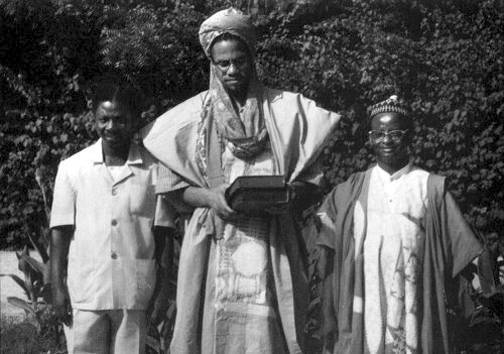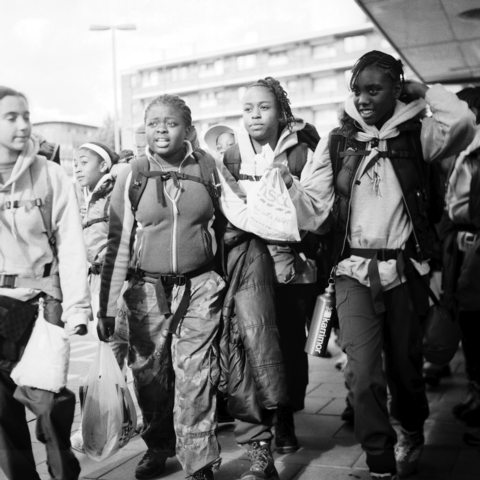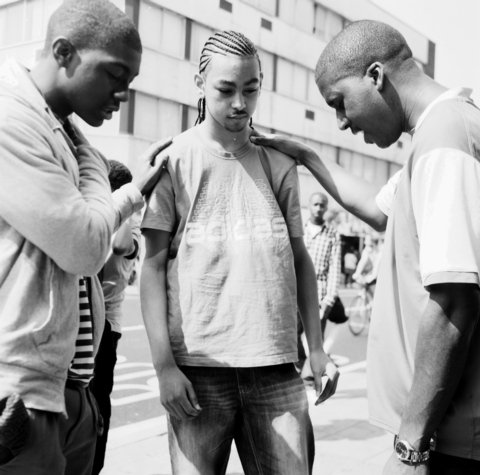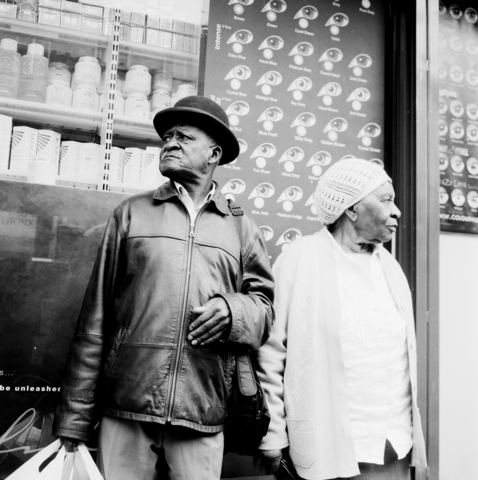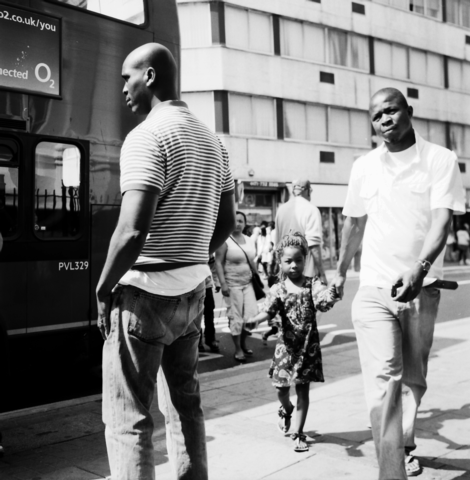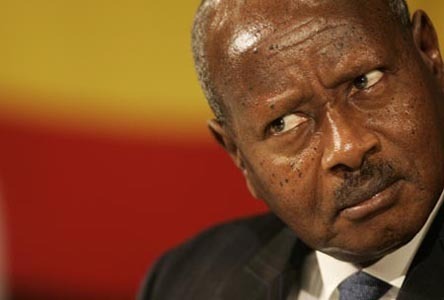Sean Jacobs's Blog, page 632
June 29, 2011
Things that bug me about Kenya(ns)
Kweli,
Guest Blogger
The first thing that comes to mind is our unquestioning admiration and obsession with wealthy people. Our newspapers and magazines are chock-full of personal interviews of rich people. In these interviews, people born with silver spoons in their mouths often offer the average Kenyan advice on how to work hard and make it to the upper echelons of our dynastic society. This advice is usually offered with astonishing sincerity and a complete lack of irony.
Another annoying habit Kenyans have is their aggressive Christianity. Christianity is truly the opium of the average Kenyan. Christianity is more like product placement when the average Kenyan is speaking: the more he mentions God, the better his profit margin. But it's not just enough for Kenyans to mention God; they are ever exorcising the devil, thwarting his plans and rebuking him. When the average Kenyan goes to a government office and he is denied service by some petty bureaucrat hoping to obtain a bribe before delivering the service, the Kenyan does not ask to speak to the manager. He does not protest. This is not a governance issue; this is spiritual warfare, a machination of the devil. So he goes to church on Sunday and prays hard that the devil and corruption be defeated. And while he's at it, he prays also for poor, starving Turkana people in the North of the Rift Valley and all those emaciated hordes of people in North Eastern province that he learned about in primary and secondary school. He prays that God, the U.S. or the United Nations may deliver food aid to them. In Jesus name, Amen.
Along with Christianity come our newfound phobias: homophobia and Islamophobia.
"Newfound" not because we don't have a bigoted history, but because they are quickly becoming the litmus tests for who is and isn't a true Kenyan. Battles have always been fought about who is included in or excluded from Project Kenya, but lately these battles are centered not just around ethnicity but also our U.S.-funded heterofascism and fear of Islam. People readily turn a blind eye when LGBTQ are beaten up, denied medical services and other rights or even murdered. I have heard people say it makes sense that the government is denying Kenyan Somalis (read: Muslims) identification cards because of the war on terror. But the same people won't rout corrupt politicians off the dais at political rallies.
The other thing that shreds my nerves is our complete ignorance of Kenyan (his)tories, especially colonial history. In Kenya, we view British colonization as one does a common cold: slightly inconveniencing, but inconsequential to overall health. We view colonization as something ancient that happened only to those Mau Mau fighters we see on black and white footage on television every Jamhuri (Independence) Day. Besides, the British left* and Project Kenya has been running as smoothly as a well oiled machine going downhill. "Kenya hakuna matata," we say.
Another annoying thing is that Project Kenya belongs to the Big 5: Kikuyu, Luhya, Luo, Kalenjin and the Kamba. Here's a good one: challenge any Kenyan to name more than 15 ethnic communities found in the country. Chances are your test subject will start stammering after getting though the big five. The Ribe, Okiek, Jibana, Marama, Sengwer, Rendile, Elgeyo, Oromo and many other communities will be etc-ed. Shortly after independence, J.M. Kariuki said "Kenya has become a nation of ten millionaires and ten million beggars," but now it might be more appropriate to say Project Kenya consists of the Big 5, etc.
* Kweli blogs as Bring Me The African Guy.








June 28, 2011
Music Break
This new video for Belgian MC Akro (former member of Starflam, the same crew Baloji used to be part of before he decided to go his own way) pretty much sums up his (and my) country's imaginary relationship with the DRC: Tintin, King Leopold, King Baudouin, Mobutu and Soukous. Leopold's 19th century Triumphal Arch (which he paid for with the money he leached off Congo) forms the background for guest singer "Jesus De Tchango". Look out for the "Leopold Wants You" flyers.








'So that's what people mean when they talk about freedom'
The trailer for "Otelo Burning," a new feature film set in Durban, a coming of age story set against the backdrop of Nelson Mandela's release from prison about a group of young black teenagers, living in a township, learning to surf. It will open next month's Durban International Film Festival.
I. want.to.see.this.
H/T: Akin Omotoso.








Assumptions about Technology
Patrick Meier, Director of Crisis Mapping at Ushahidi (amongst other titles), has some refreshing thoughts about the limits of technology adaptation across different contexts:
I've spent the past week at the iLab in Liberia and got what I came for: an updated reality check on the limitations of technology adoption in developing countries. Below are some of the assumptions that I took for granted. They're perfectly obvious in hindsight and I'm annoyed at myself for not having realized their obviousness sooner. I'd be very interested in hearing from others about these and reading their lists. This need not be limited to one particular sector like ICT for Development (ICT4D) or Mobile Health (mHealth). Many of these assumptions have repercussions across multiple disciplines.
Click here to read his list (I can personally relate to the one about Nokia phones), which were quite possibly inspired by elevator pitches in Liberia.








Africa is a Country
Must be our blog title.
Someone named STONE decides to vent on The Hill's Congress Blog about US foreign aid in a piece about policing the already shrinking foreign aid budget that's currently only 1.5% of all federal spending:
It does not matter how little the amount sent to foreign countries, it is the principal of the thing…why send aid to china, a country that continues to grow our debt and buy it up and yet we send them aid? why send aid to africa, we owe that country nothing, just as we owe nothing to every other country..we Americans fought our way out of our own tyranny and yet we did it…they should do the same without our help…we even had less and do less than those countries do now and yet we help them…why?
A few others think so too as we know, old school comedian Drew Carey (in this embarrassing video) and Sarah Palin, for example, have made the same mistake.
Though he was not born in Kenya, at least Barack Obama knows it's a continent.
H/T: Amanda Makulec








'Cars, Clothes and Parties'
Seun Kuti (28 year old son of Fela), playing Brooklyn next month, talk to Wax Poetics TV has some issues with other artists. He is definitely casting stones on all the blinged out, autotuned Nigerian pop.








June 27, 2011
June 27th, Djibouti
Earlier this year, Djiboutians marched the streets of their capital (where more than half of all Djiboutian citizens live), rallying against their sitting president who changed the constitution in 2010 allowing him to run for another term. It didn't pan out as planned, with the president (who replaced his uncle as leader of the ruling party in 1999) securing a third term in April. "I regret having no opponent," he said. "I accuse the opposition of not having the courage to give voters the right to choose between several candidates." But that doesn't change the fact today is still Djibouti's Independence Day.
Awelah Adan is the country's latest star, singing in Somali. This video dates from a while back, but it is a classic:
Abayzid Ali, on the other hand, sings in Afar. His lyrics have a more poetic touch:
Writer Abdourahman Waberi put us on to this song by Mohammed Ali aka 'Fourchette' about whom he says: "It may sound weird, but it is more than that. Inspiring, poetic. He's singing in Somali. Popular among the youth as well. His son has remixed some of his old songs":
And finally, this song. Not quite from Djibouti, but the video was recorded there. Why? We have no idea. Neither are we sure they're showing this on Djibouti TV. Lumidee ft. Chase Manhattan:
You'll find more on the DjibTube video channels.








Malcolm X in Africa
I am dipping in and out of Manning Marable's over 600-page biography of Malcolm X. As Tariq Ali, correctly writes in The New Left Review (in a review of the book), there's too much on Malcolm X's personal life so that as a result "… the events that shaped his continuing intellectual evolution—the killing of Lumumba and the ensuing crisis in Congo; the Vietnam War; the rise of a new generation of black and white activists in the US, of which Marable was one—are mentioned only in passing." Ali does summarize the book's account of Malcolm X's two visits to the African continent and its effect on Malcolm:
In March 1964, Malcolm announced his break with the Nation of Islam, and his intention to set up his own organization. In fact, he set up two: Muslim Mosque Inc.—a direct alternative to the Nation of Islam—and then, in June, a second body with a wider remit called the Organization of Afro-American Unity. The choice of name for the latter was clearly influenced by the month-long trip to Africa and the Middle East Malcolm had made that spring. In April he had completed the hajj; according to Marable, the egalitarianism among pilgrims of all colours brought an 'epiphany', suggesting black separatism was not the only solution to the problems of race. What Malcolm had witnessed in Africa, meanwhile, gave more substance to his changing political views. Soon after his return, he gave a speech drawing parallels between European colonial rule and institutionalized racism in the US: the police in Harlem were like the French in Algeria, 'like an occupying army'. As Marable notes, 'for the first time he publicly made the connection between racial oppression and capitalism'. African-Americans should, he said, emulate the Chinese and Cuban revolutions, also observing that 'all of the countries that are emerging today from under colonialism are turning towards socialism. I don't think it's an accident.'
Malcolm made a second, longer African trip from July to November 1964, visiting a string of countries where he met a range of intellectuals and political figures. In Egypt, he spoke at the OAU conference and talked with Nasser; in Ghana, he met Shirley DuBois and Maya Angelou; in Tanzania, Abdulrahman Mohamed Babu and Julius Nyerere; in Kenya, Oginga Odinga and Jomo Kenyatta. The international dimension was crucial to his thinking in the final months. In mid-December, he invited Che Guevara—in New York for the celebrated UN General Assembly speech—to address an OAAU rally; Guevara did not attend, but sent a message of solidarity. 'We're living in a revolutionary world and in a revolutionary age', Malcolm told the audience. He continued:
I, for one, would like to impress, especially upon those who call themselves leaders, the importance of realizing the direct connection between the struggle of the Afro-American in this country and the struggle of our people all over the world. As long as we think—as one of my good brothers mentioned out of the side of his mouth here a couple of Sundays ago—that we should get Mississippi straightened out before we worry about the Congo, you'll never get Mississippi straightened out.








Naija, London
Photographer Liz Johnson Artur, first arrived in Peckham, London, 20 years ago to live. A neighborhood of mostly high rise public housing blocks, Peckham is considered one of the poorest neighborhoods in Britain, is associated with high crime and high unemployment. Liz (who has been featured on AIAC before) writes in an email, that the occasional, mostly sensational, headlines of Peckham, totally misrepresent life as it is for a majority of people there. The people of Peckham "… has treated me well and make it a good place." What Peckham also has is diversity. More than a third of the residents are immigrants from Africa, almost 20% are from the Caribbean. Smaller numbers of whites and South Asians make up the rest. There's also been some gentrifying. The heart of Peckham is Rye Lane, its commercial strip. Liz has been photographing the denizens and visitors of Rye Lane. Here, with her permission, are a selection of her images of Rye Lane. More photographs of Rye Lane on Liz's site, Black Balloon Archive.








Love Triangle in Kampala
I've been wondering when The New York Times would do an analysis piece on the political protests in Uganda and what angle they would take. They have now. Reporter Josh Kron (is he new in the region?) writes that at the heart of the political crisis is a contest between Life President Yoweri Museveni and Kizza Besigye over a woman. Besigye's wife. Seriously:
[Museveni's critics say] the feud is personal, tied to the president's relationship with Mr. Besigye and his wife, Winnie Byanyima, whom Mr. Museveni has known since childhood and, many say, once wanted to marry.
The history may shed light on the depth of the political movement. It was the winter of 1980, after nearly a decade of Idi Amin's brutal dictatorship, when Mr. Besigye, then a young doctor, started attending rallies for a popular and charismatic new political figure, Mr. Museveni.
"He was a young person who in himself attracted us as young people," Mr. Besigye said. "He was saying the right things that struck a chord with us, about what kind of government Uganda deserved. We started to see him as one of the shining torches."
When Mr. Museveni's new political party came in third in general elections that year, he started a guerrilla movement in the bush. Activists like Mr. Besigye were hunted down, and Mr. Besigye says he and others were locked in the basement of a popular Kampala hotel.
He escaped and in 1982 found the rebels in the bush and was welcomed by Mr. Museveni, who made him his personal doctor. "I lived next to him in a tent," Mr. Besigye said, "and stayed close by him until the end of the war."
Mr. Besigye said he also met Ms. Byanyima. She was a young rebel officer close to Mr. Museveni in the bush while his wife and children were living in Sweden. Years later, Mr. Besigye and Ms. Byanyima would marry.
Mr. Besigye said that at times Mr. Museveni and Ms. Byanyima were involved in a romantic relationship, and that as a doctor he treated both of them, gradually becoming a trusted counsel to the rebel leader. After Mr. Museveni triumphed and became president in 1986, Mr. Besigye was named minister of internal affairs.
But trouble soon began. Mr. Besigye said that when he challenged the president on corruption or constitutional issues, the relationship soured.
Ms. Byanyima also fell out with the president, as did her father, Mzee Boniface Byanyima — an elder statesman and a one-time surrogate father to President Museveni. Mr. Byanyima said he rejected the president when he asked for his daughter's hand, offering to seek an annulment of his marriage to make it possible.
"I didn't like the man's character," Mr. Byanyima, 92, said in a recent interview. "I knew that that man, sooner or later, he will run this country into trouble. I told my daughter, 'Don't allow Museveni to make you his second wife.' "
Ms. Byanyima declined to comment, saying only that Uganda's political row was about national issues.
In 1990, Mr. Besigye was dismissed from his position as minister and was ordered to take military training, a clear demotion. He soon became popular within the armed forces and was elected to the military's high command.
He became increasingly vocal in politics, and in the early 1990s he says he began a romantic relationship with Ms. Byanyima, who left a diplomatic post in France to run for Parliament as an opposition politician. The two campaigned together, romance intertwining with politics.
Mr. Besigye acknowledges an element of romantic friction in the political dynamics between him and President Museveni, but he said it was not a critical factor.
"Even if there was no relationship," Mr. Besigye said of his marriage to Ms. Byanyima, the antagonism between him and the president "would be the same as it is today."
While many observers agree that Uganda's political row is about larger political differences, they say the tight nucleus of personalities is a steering force in the events. "This is about power," said Amii Omara-Otunnu, a Ugandan professor of history at the University of Connecticut, and "animosity."
"Besigye was the one who was closest to Museveni," said Dr. Omara-Otunnu, whose brother is an opposition politician. "The person Museveni fears the most, apart from Besigye, is Winnie."
Another person close to the first family said that, for President Museveni, losing Ms. Byanyima was like "losing Helen of Troy."
Tamale Mirundi, a spokesman for Mr. Museveni, declined to discuss any personal relationship between the president and Ms. Byanyima, and he referred to Mr. Besigye as a "reject." He added that Ms. Byanyima had used her professional relationships with the governing party to "pave the way" for Mr. Besigye.








Sean Jacobs's Blog
- Sean Jacobs's profile
- 4 followers




